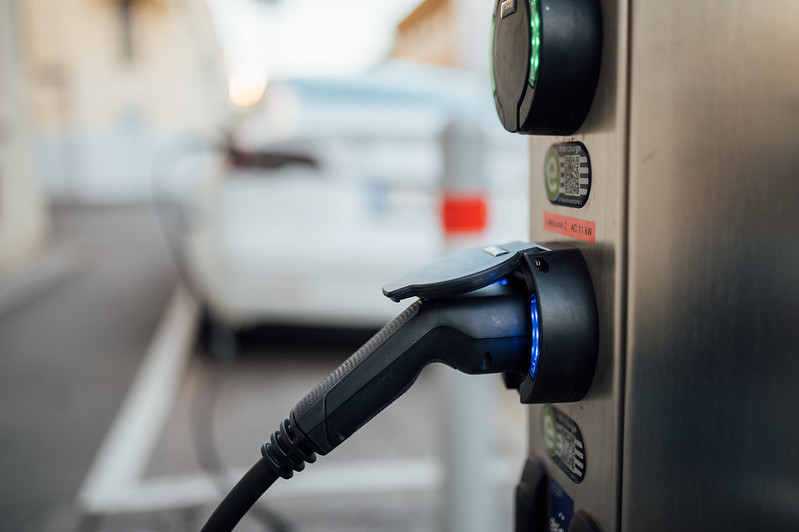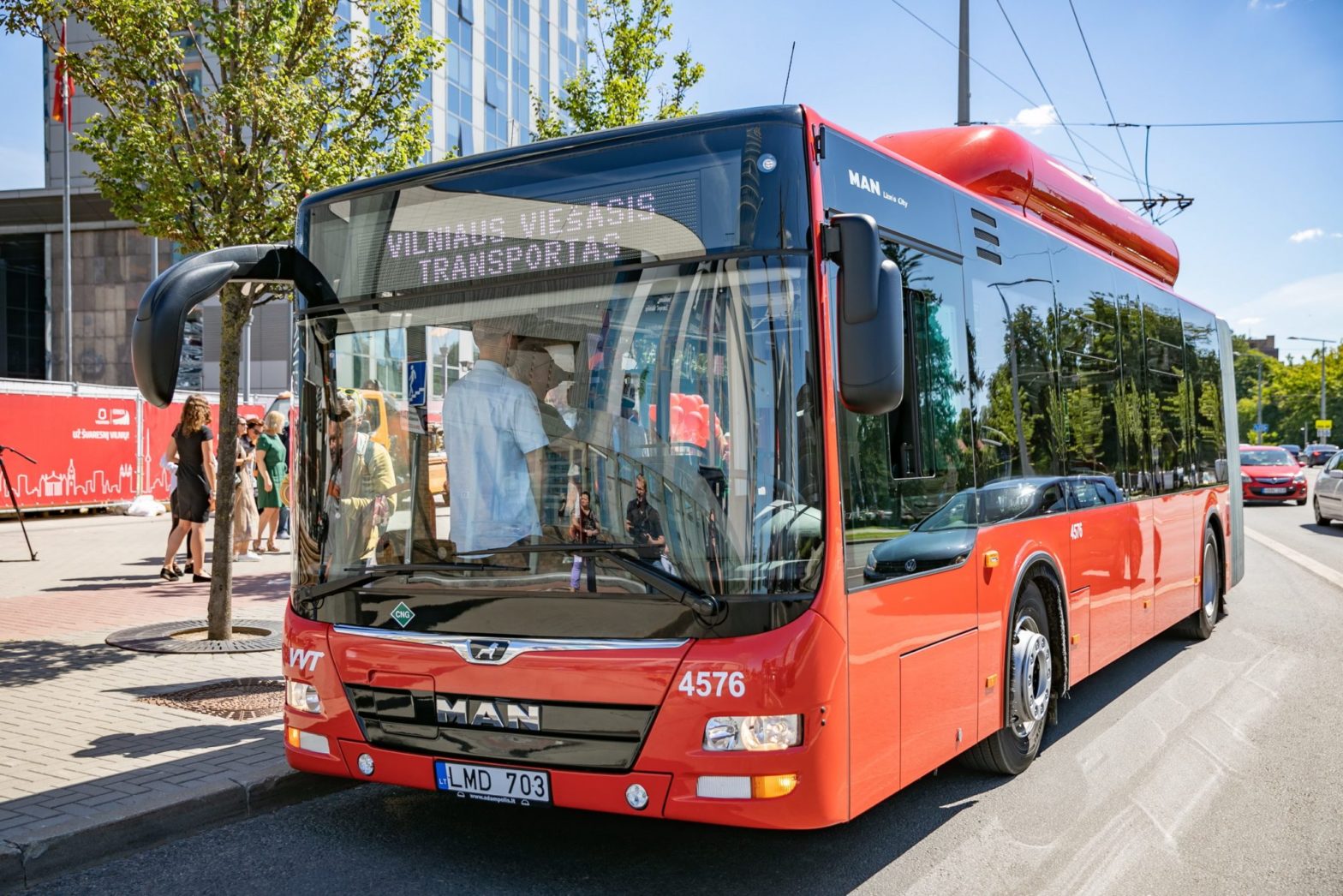
Photo: Ivan Radic
UK city pilots solar-powered roadside batteries for EVs
16 March 2023
by Christopher Carey
Nottingham City Council in the UK is piloting the country’s first scheme to power an electric vehicle fleet with solar energy, which is gathered and stored in two giant roadside batteries.
Following last month’s announcement from National Highways on EV charging at motorway service stations, the new scheme looks to install similar large energy storage units, but with solar panels as their only direct power source.
Made from recycled car batteries, the units can store 1,200kWh of electricity – enough to power a television for almost a year.
Alongside the batteries, 40 bi-directional Vehicle-to-Grid (V2G) chargers, 40 compatible electric vehicles, six electric bin lorries, and solar panels have been installed at the City Council’s fleet depot.
“Our aim with this project is to make the most of renewable energy that we’re generating in Nottingham, reducing carbon emissions and costs associated with our fleet,” said Councillor Sally Longford, Nottingham City Council’s Head of Energy, Environment and Waste Services.
“We are leading the way when it comes to the green agenda, and innovative projects like these are key to helping us to achieve our target of being the first carbon neutral city in the UK by 2028.”
Energy management system
The pilot aims to maximise the use of renewable energy that is generated locally by using the giant batteries and the V2G vehicles for short-term storage of the electricity generated by the solar panels.
Monitored by a purpose-built Energy Management System, the bi-directional charging units can send power back to the buildings on the depot or to the grid during peak times, and this balances the demand of electricity and reduces energy costs.
The depot serves as a commercial hub for Nottingham City Council’s waste, energy, highways and infrastructure operations, including where 66 percent of the city’s household waste is turned into energy for 5,000 homes.
“By using an intelligently managed Battery Energy Storage System (BESS) and V2G, on-site solar energy can be maximised and the depot will effectively be able to isolate itself from the grid,” said Steve Cornes, Nottingham City Council’s Principal Energy Projects Officer.
“The systems will allow us to ensure production costs of electricity will be negligible, allowing us to peak shave so that we can avoid high electricity tariffs and give us the opportunity to trade electricity back to the grid.”
“As the City Council fleet transitions to electric, including large vehicles such as refuse lorries, we will be using the battery energy storage system to prop up the grid.”
Much of the City Council’s fleet is based at the depot, and significant efforts have been made to decarbonise its bin lorries, sweepers, vans and more, with over 50 percent of the council’s fleet now powered by electricity.
Image: Ivan Radic (Flickr)











